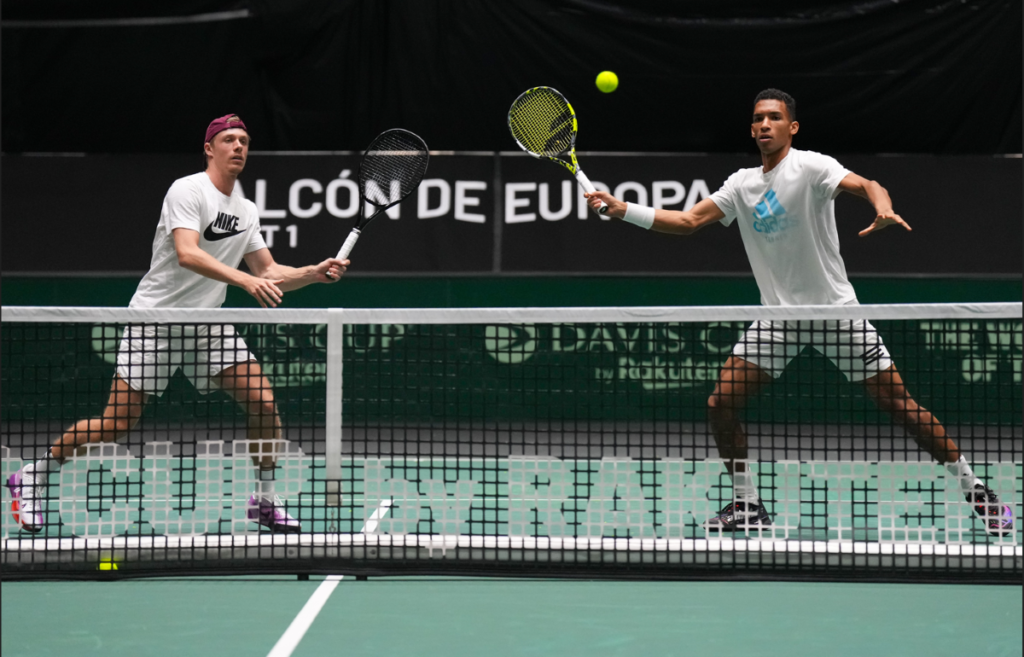
Photo: Martin Sidorjak
Canada is one of the strongest nations at this week’s Davis Cup Finals in Malaga, Spain.
With some nations not present (i.e. Russia, Serbia, Great Britain and France) and several players absent (i.e. Carlos Alcaraz, Rafael Nadal, Alexander Zverev, Jannik Sinner, Matteo Berrettini and Nick Kyrgios), Canada is clearly a top-tier favourite.
But being a highly-rated team is no guarantee of success. In fact, with Canada’s history in this year’s competition, if it were a cat it would have already spent about 7½ of its nine lives.
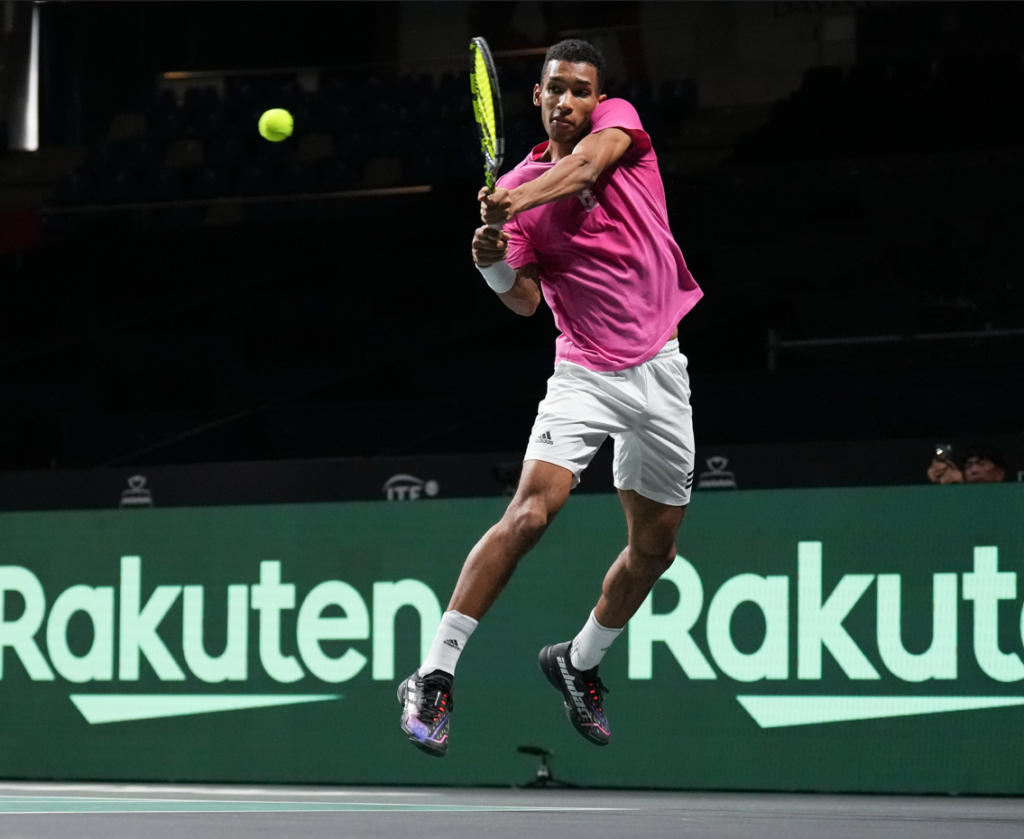
Since reaching the 2019 final in Madrid, Canada lost in 2021 (Davis Cup was cancelled in pandemic 2020) to Sweden and Kazakhstan in the Finals in the Spanish capital and then was beaten by the Netherlands in March of this year in the Qualifiers phase. Those three ties were played without its two best players – Félix Auger-Aliassime and Denis Shapovalov.
That loss to the Dutch in The Hague should have been the end for Canada in 2022. But when Russia invaded Ukraine in February and was subsequently banned from the competition – as the highest-ranked (6th) remaining nation, Canada earned a spot in the Davis Cup Finals group stage in September in Valencia. Then playing with Auger-Aliassime and Vasek Pospisil but no Shapovalov, there were harrowing 2-1 victories over South Korea and Spain in the group stage to make it to the Final 8. It came down to the decisive doubles in the first two of its best-of-three matches ties, and both times Auger-Aliassime and Pospisil were perilously close to losing. Against the unheralded South Korean pairing of Song Min-Kyu and Nam Ji Sung, they were trailing 3-1 in the final set before rallying for a 7-5, 5-7, 6-3 victory.
Things were even more dire against the Spanish duo of Marcel Granollers and Pedro Martinez in the deciding doubles in the second tie. Auger-Aliassime / Pospisil had been outplayed and trailed 5-3 in the final set before Martinez served for the match at 5-4. An amazing barrage of timely and hyper-aggressive serve returning enabled them to break Martinez, and do the same to Granollers two games later, in a remarkable 4-6, 6-4, 7-5 comeback victory.
Pospisil later eloquently put the doubles survival of he and Auger-Aliassime in perspective when he said, “I think sometimes it’s normal that you have matches like that that are almost played on a coin toss. We came back twice in doubles – against Korea and Spain – from a break down in the third set. Last night (September 16th against Granollers / Martinez) it was epic. We just believed until the very end. I think you lose probably 95 per cent of those matches if you’re put in that situation. But that five per cent went our way yesterday. I’m really happy that we were able to push each other, and the team pushing us, until the end to win the last three games.”
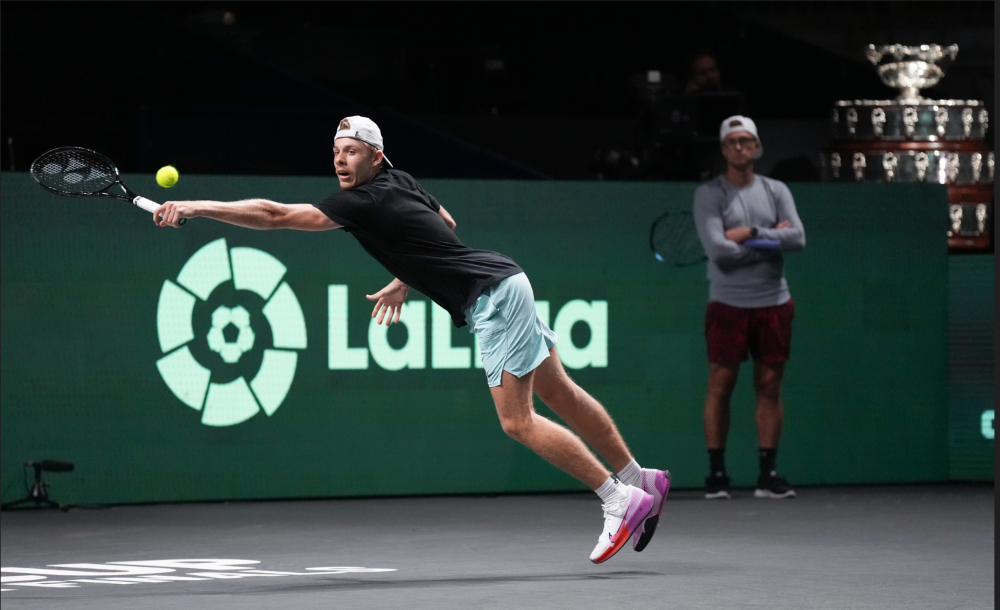
On Thursday, in the new one-site, single-elimination format of the Final 8, Canada starts out against Germany with its full complement – Auger-Aliassime, Shapovalov and Pospisil – along with Alexis Galarneau and Gabriel Diallo.
The Germans are without their best player, current No. 12 Zverev who tore ligaments in his right ankle during the French Open semi-finals and then suffered a season-ending bone edema in his foot when he attempted to return for Davis Cup in September. Heading the German line-up in Valencia will be No. 67-ranked Oscar Otte, No. 131 Yannik Hanfmann and No. 152 Jan-Lennard Struff, as well as two accomplished doubles players in No. 18 Tim Puetz and No. 25 Kevin Krawietz. Over their careers together in Davis Cup – just 2021 and 2022 – Puetz and Krawietz are 7-0. Individually in total, with different partners, they are 12-0 and 11-0 respectively in Davis Cup action.
Of note, all three German singles players are 6-foot-4. As Canada’s No. 1, it appears Auger-Alassime will play either the 29-year-old Otte or the 31-year-old Hanfmann. He won his only previous meeting with Otte 6-4, 6-7(2), 6-2 in the second round on his way to the title in Florence last month and has not played Hanfmann.
As for Shapovalov, he also has not faced Hanfmann but lost 7-6(6), 7-6(4) to Otte on grass in Stuttgart this year. And he has a lot of history with Struff. The 32-year-old German leads their head-to-head 5-3 dating back to 2018. But Shapovalov has won two of the last three – at the ATP Cup and in Dubai, both in 2022. Struff, who ranked as high as No. 29 in 2020, has struggled in 2022, missing two months in the spring with a foot injury. His 2022 match record is 7-13, but he went 3-0 in Davis Cup Finals group stage qualifying in September.
“Ranking-wise we might not be the favourite,” said German captain Michael Kohlmann about Thursday’s match-up against Canada, “but I think in the last years we showed that we can beat some higher-ranked opponents (including Serbia, France, Great Britain, Belgium and Australia) and I’m pretty confident that we will be at the top of our level.”
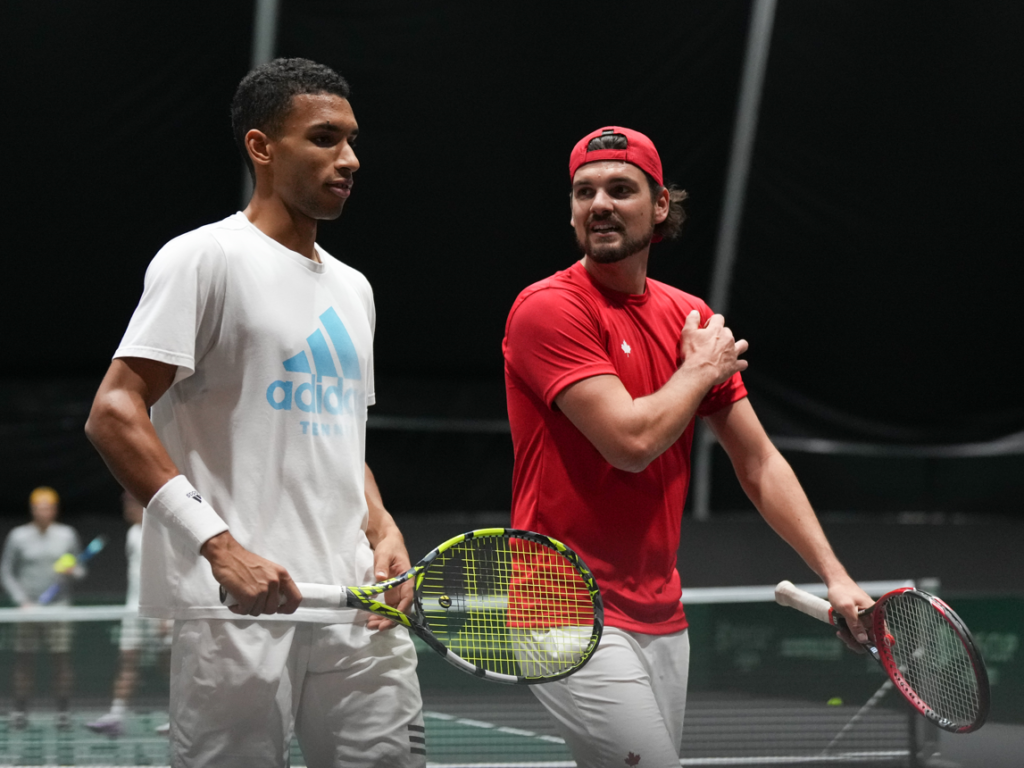
If the singles rankings of each team’s best players in Malaga are combined – Canada is No. 1 with Auger-Aliassime’s No. 6 and Shapovalov’s No. 18 – totalling 24. The next closest nations would be the USA with No. 9 Taylor Fritz and No. 19 Frances Tiafoe for 28. and Spain with No. 13 Pablo Carreno Busta and No. 21 Roberto Bautista Agut for 34.
Worth noting, if Canada wins its quarter-final against Germany it would play either the American team, which also includes Tommy Paul and doubles standout Jack Sock, or Italy playing without its top two players – No. 15 Sinner and No. 16 Berrettini – in Saturday’s semi-finals.
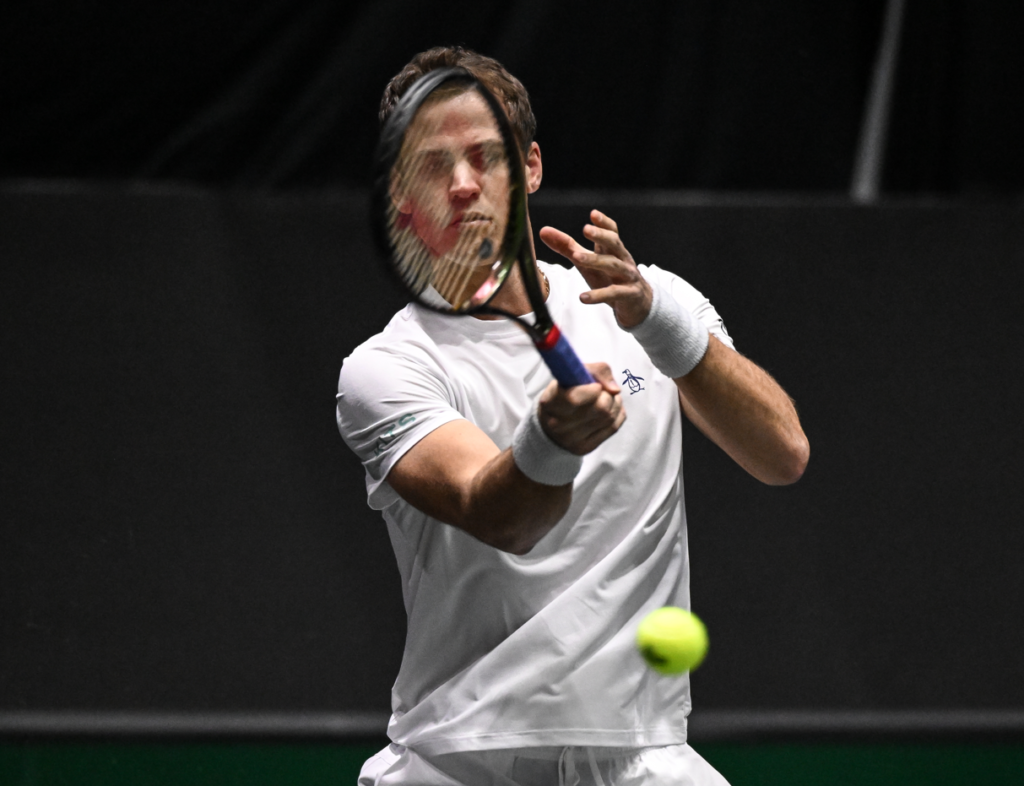
It will be interesting to see who Canadian captain Frank Dancevic selects to play in the doubles. The experienced Pospisil (a 12-10 Davis Cup record) is almost an automatic pick – but will he partner with Shapovalov or Auger-Aliassime? Shapovalov currently ranks No. 75 in doubles and has played 11 events in 2022 while Auger-Aliassime is No. 258 and has only played in six tournaments this year.
Both have partnered with Pospisil in Davis Cup in the past. Auger-Aliassime winning twice – against South Korea and Spain in September. Shapovalov is 2-1 with Pospisil – all matches during Canada’s run to the 2019 Davis Cup final.
In trying to determine who Dancevic could choose for the doubles, a few factors could be in play. The obvious recency bias is that Pospisil and Auger-Aliassime won both matches in September in Valencia, even if both were by the skin of their teeth. On the other hand, Shapovalov will likely play the first singles as the team’s No. 2 player, meaning he would have more time to rest before the doubles with Auger-Aliassime playing second as the team’s No. 1. Also, a righty (Pospisil) / lefty (Shapovalov) pairing has traditionally been viewed as the ideal doubles combination.
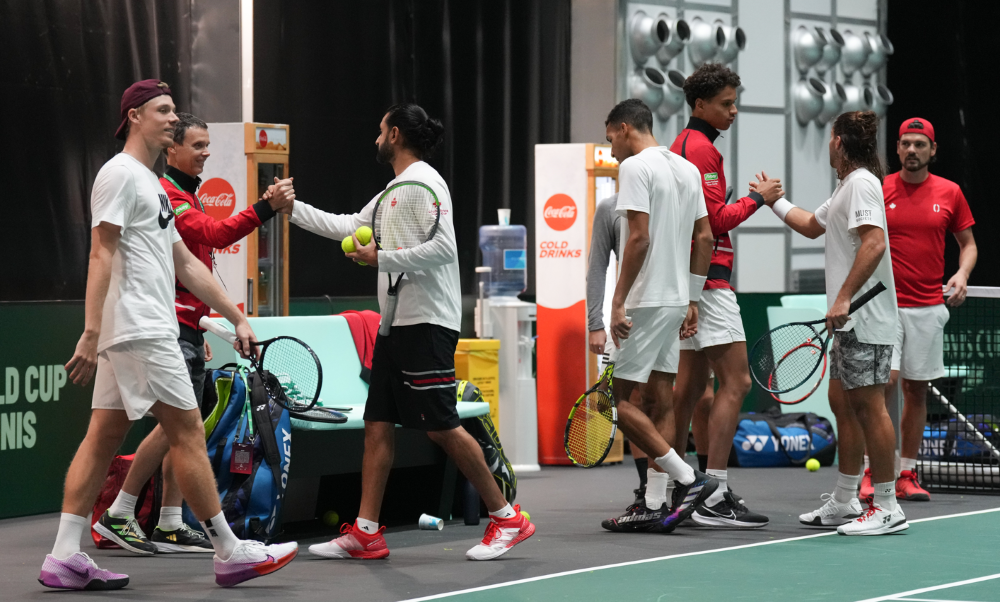
NOTE: Canada vs Germany will be carried on Sportsnet One and TVA Sports 2 beginning at 10 a.m. ET on Thursday.

Feature Photo: Martin Sidorjak


